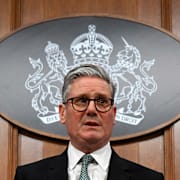
Inför Brexit-mötet: Lobbar för snabb uppgörelse
På torsdag samlas EU:s statsråd för ett toppmöte, där huvudfokus ligger på att diskutera Storbritanniens framtida relation till unionen.
Men redan i dag befinner sig landets premiärminister David Cameron i Bryssel för att försöka övertyga parlamentets tyngsta partigrupper – kristdemokratiskt konservativa EPP, socialdemokratiska S&D och liberala Alde – att gå med på en snabb uppgörelse, skriver TT.
Cameron togs emot av parlamentets talman Martin Schulz, som beskrev mötet som ”konstruktivt”.
– Vi gick in på detaljerna i förslaget inför mötet på torsdag. Det var ett väldigt öppet meningsutbyte och tog längre tid än väntat.
Några garantier är dock inte aktuella, menar Schulz:
– Jag gav premiärministern en klar signal om att vi kommer att vara så konstruktiva som möjligt. […] Så fort som en lösning är klar i rådet så kommer vi att inleda den lagstiftande processen så fort som möjligt. Men jag kan naturligtvis inte ge några garantier.



